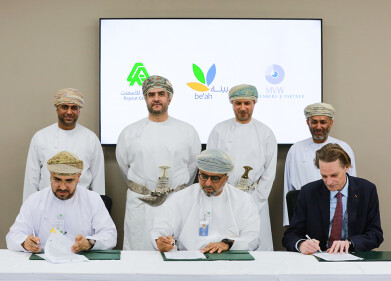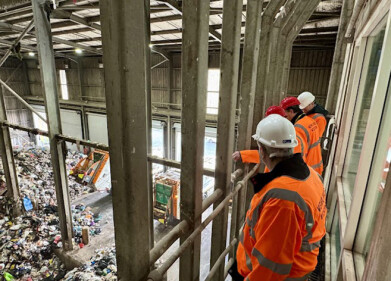Waste management
How Will COP26 Combat Pollution?
Nov 04 2021
With COP26 now in full swing, it is falling to the world leaders and national delegates gathered in Glasgow to hammer out agreements and forge plans for addressing climate change. Specifically, this will involve finding ways to limit global warming to a ceiling of 1.5°C compared to pre-Industrial Revolution temperatures by curbing emissions and transitioning to greener sources of energy.
Pollution, in all its forms, is an integral piece of this puzzle. From the air pollution emitted as a direct consequence of energy generation to the food waste resulting from careless consumption habits, there are many ways in which pollution has a bearing on climate change. Here’s a closer look at some of the key ways COP26 hopes to address those issues and combat pollution.
Coal
If we are serious about attaining the goal of keeping global temperature rises beneath 1.5°C, the best scientific estimates project that 89% of all known coal reserves must stay in the ground. That’s because coal is the most damaging fossil fuel, emitting much greater volumes of pollution than oil or gas. One of the main objectives of COP26 will be convincing those nations – like China, India and Australia – who still depend on coal for a significant proportion of their energy generation makeup to phase it out in the near future.
Methane
While carbon dioxide might hog all the headlines when it comes to greenhouse gases, methane is in some ways worse. It might not persist for as long in the environment as CO2, but it can be 84 times more potent than carbon over a period of 20 years. As such, methane monitoring matters. Significant sources of methane include the aforementioned coal mines, as well as natural gas mining and processing plants. Meanwhile, livestock emit a substantial amount of methane too, meaning that agriculture is another subject which must be on the agenda at COP26.
Food waste
Given that the food industry is one of the biggest sources of carbon emissions, it’s only logical that it should play a central role in COP26 discussions. This should not only encompass ideas such as transitioning towards a plant-based diet and sourcing locally-grown produce, but also reducing the amount of food waste we generate as much as possible. Encouragingly, a recent study showed that food waste among London residents had fallen by 7% per person between 2015 and 2018, so COP26 will provide a chance for the UK to fulfil its role as convention leaders by sharing its experiences with the rest of the world.
Plastic pollution
At present, an astounding 11 million metric tonnes of plastic end up in our seas and oceans each year. Even more concerningly, that figure is expected to nearly triple to 29 million tonnes by 2040 if no action is taken to curb our consumption. With that in mind, it’s expected that the University of Portsmouth will use COP26 as a stage to announce the launch of their Global Plastics Policy Centre (GPPC) on Thursday 4th November. This unique resource is expected to equip governments and businesses with the resources they require to follow the lead of climate scientists, plan strategies and implement policies aimed at cleaning up the planet’s disastrous plastic pollution problem.
Events
Apr 08 2025 Targi Kielce, Poland
Apr 08 2025 Bahrain
Apr 10 2025 Beijing, China
Apr 10 2025 Beijing, China
Apr 15 2025 Moscow, Russia














